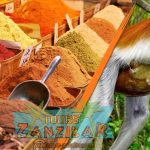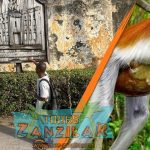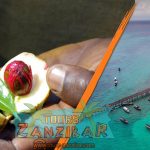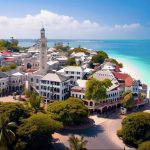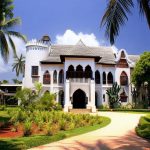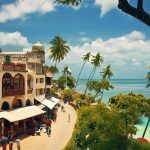Nestled off East Africa’s coast, Zanzibar is a visual paradise and a vibrant tapestry of sound and movement. Traditional music and dance form the heartbeat of this enchanting archipelago, offering a rich cultural immersion that transcends time. At Tours-Zanzibar.com, we delve deep into the rhythmic world of Zanzibar’s heritage, exploring how these art forms are integral to local life’s social, spiritual, and celebratory fabric. Join us as we uncover the stories behind the beats of the drums and the intricate steps of dancers, painting a vivid picture of Zanzibar’s cultural landscape that both captivates and educates. Whether you are a music lover, a dance enthusiast, or a curious traveler, get ready to embark on a journey where tradition meets melody and every movement tells a story.
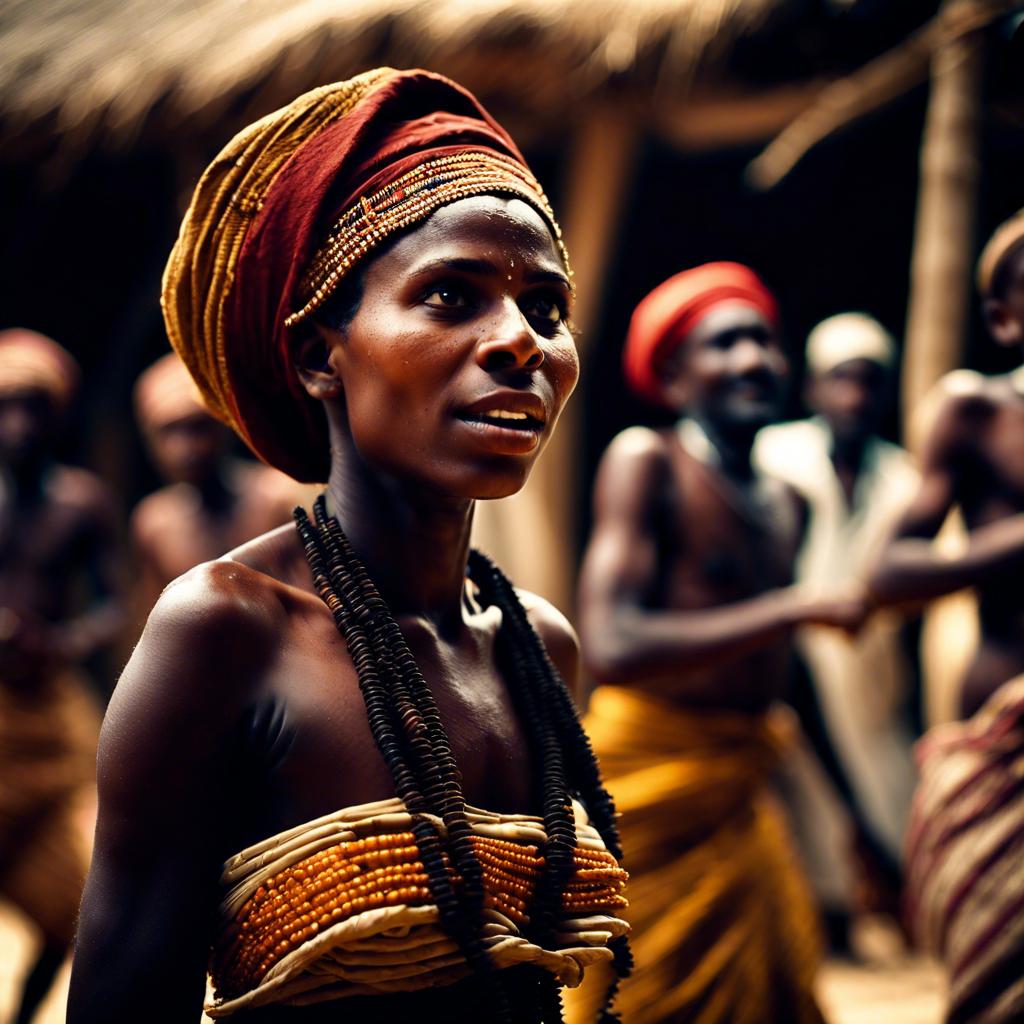
Exploring the Roots of Zanzibar’s Traditional Music
The Historical Harmony of Taarab and Beneath
Zanzibar’s musical journey began centuries ago, heavily influenced by varying cultures due to its strategic position along the trade routes. At the heart of this cultural amalgamation is Taarab, a music genre that emerged in the late 19th century under the patronage of Sultan Barghash. Taarab is a mesmerizing blend of Swahili tunes infused with Arabic and Indian musical elements. It is traditionally performed with an orchestra that includes violins, flutes, ouds (lute), and tablas, creating a musical harmony that captures the island’s historic trade relations and cultural exchanges.
Components and Instruments
- Ngoma: This term is used for traditional drums, prevalent in East African music. The rhythms of ngoma drums play a crucial role in dances and community celebrations, steering the tempo and spirit of the gatherings.
- Kidumbak: A smaller, more intimate setting compared to Taarab, where drums, small lutes, and sometimes a violin provide a rhythmic and soulful accompaniment to singers who often engage in lyrical improvisation.
A Glimpse into Traditional Performances
For those who wish to dive deeper into the magnetic field of Zanzibar’s music scene, Tours-Zanzibar.com offers exclusive musical tours, integrating participants directly with the local heritage. Attendees have the unique opportunity to witness live performances, not just shows but deeply interactive sessions. Here, musicians share tales embedded in their songs, explaining the linguistics behind the lyrics, which often reflect everyday life, social issues, and, occasionally, playful anecdotes. Such encounters provide profound insights into the delicate weave of Zanzibar’s social and cultural fabric, enhanced by the immersive beats of traditional melodies.
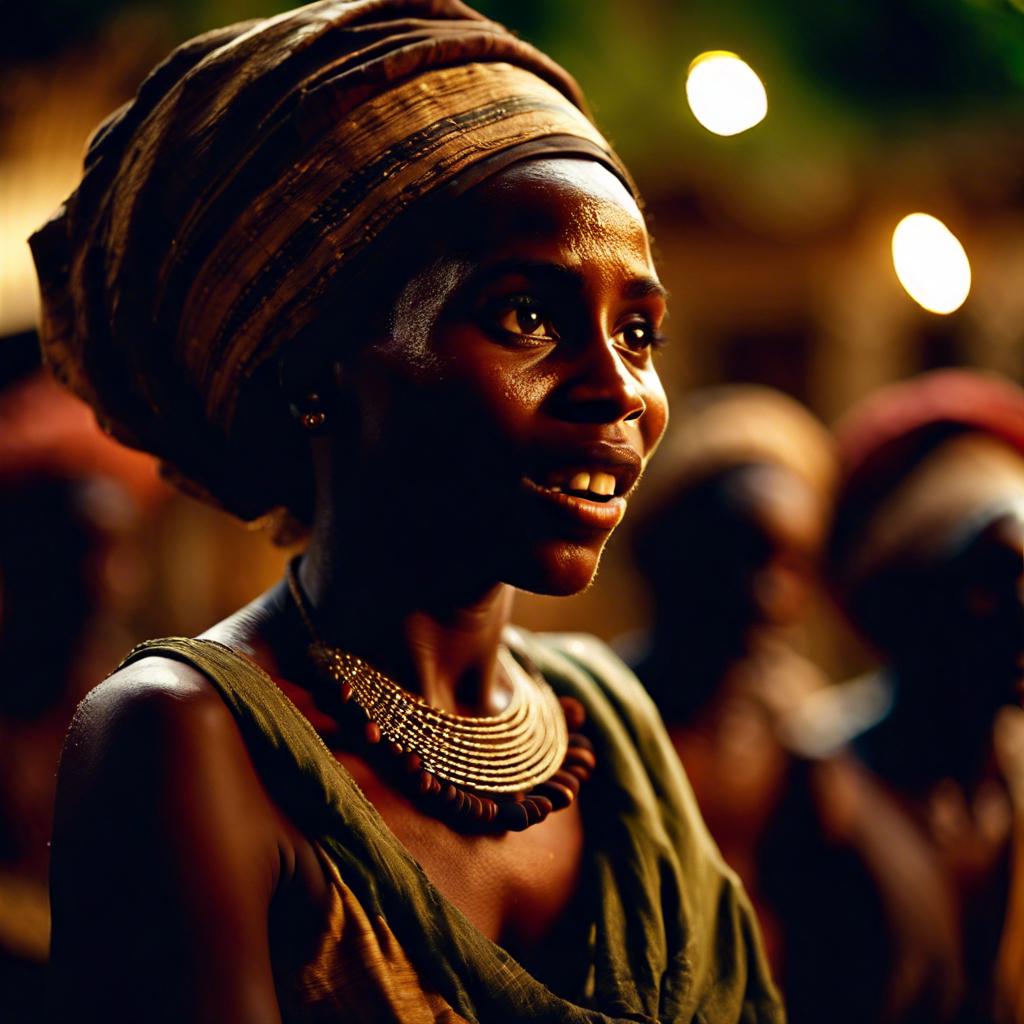
Instruments Unique to Zanzibar: The Soul of its Melodies
Exploring the Traditional Instruments of Zanzibar
The magic of Zanzibar’s musical heritage is encapsulated in the rhythms and melodies and in uniquely crafted instruments that tell a story of cultural interchange and ingenuity. A significant instrument emblematic of Zanzibar’s musical essence is the qanun, a string instrument that produces musical tunes reminiscent of the archipelago’s oceanic breezes. It features a trapezoid-shaped board with small levers allowing intricate tonal adjustments. It is essential to perform the microtonal scales typical of Taarab music, the soulful genre native to the region.
Local Crafts, Global Melodies
Another treasured instrument is the zeze, a two-stringed, bow-played violin that carries the harmonic responsibilities in many local songs. Unlike its Western counterparts, the size is crafted from a coconut shell covered in cowhide, producing a resonance hauntingly evocative of Zanzibar’s mystique. In addition, there is the marimba, an African xylophone which, although found in various parts of Africa, is locally adapted to fit Zanzibar’s unique musical requirements. Played vigorously during lively occasions, its hypnotic sound perfectly complements the pulsating rhythms of the drums.
The vitality of these instruments can be most vividly experienced in live performances, where artisans showcase their expert craftsmanship. By booking an immersive tour through Tours-Zanzibar.com, visitors can learn about these instruments from the master artisans and musicians who breathe life into them. Engagements could include interactive workshops where tourists are taught how to play these instruments, offering an enriching peek into the vibrant cultural fabric of Zanzibar.
These instruments are more than just tools for music; they are vibrant narrators of Zanzibar’s rich cultural tapestry, resonating with its people’s collective memories and histories .
Taarab: The Soundtrack of Zanzibar
Exploring the Melodic Waves of Taarab
Steeped in the history and cultural milieu of the Swahili coast, Taarab music offers a mesmerizing blend of rhythmic complexity and lyrical intensity. Originating from Zanzibar in the late 19th century, this genre combines elements from the Middle East, India, and the local African tradition, resulting in a rich auditory tapestry that captivates its listeners. During your stay, Tours-Zanzibar.com provides exclusive access to live performances held in ancient venues, which almost echo the intricate melodies of the past.
The Intricate Elements of Taarab
- Melody: Often led by a violin or a kanun (zither), the music carries a delicate, weaving melody line that dances over a steady rhythmic base.
- Rhythm: Percussion instruments such as the tabla or darbuka provide the heartbeat, infusing each song with a rhythm that invites you to sway.
- Lyrics: Taarab songs revolve around themes of love, longing, and everyday life experiences, often depicted through poetic Swahili lyrics.
The dance associated with Taarab, often overlooked, is a subtle interplay where the movement complements the music. It is both a visual and an auditory pleasure—a dance of controlled elegance layered with symbolic gestures and eye expressions that narrate unspoken tales.
Experience Taarab with Tours-Zanzibar.com
Tours-Zanzibar.com ensures that you do not just hear Taarab but experience it in its authentic form. We organize visits to local clubs and annual festivals where Taarab is celebrated and provide interactive sessions where our guests can learn about the instruments and techniques used in Taarab music production. This immersive experience is designed to entertain and enrich, providing a deep understanding of why Taarab is not just music—it’s the soulful expression of Zanzibar’s identity.
Kidumbak: A Livelier Interpretation of Taarab
An Exhilarating Spin on Traditional Sounds
If Taarab is the soulful melody that encapsulates the depth of Zanzibari culture, Kidumbak is its spirited cousin, inviting dancers and musicians alike to revel in its lively rhythms. Originating as a more accessible and informal adaptation of Taarab, Kidumbak thrives in interactive street performances and local gatherings, offering a lighter, more rhythmic flavor that encourages dancing and participation.
Characteristics of Kidumbak
In contrast to the classical strains of Taarab, which feature expansive orchestras and can often extend over hours, Kidumbak ensembles are typically more compact. A typical group includes:
- Violins – Carrying the melodic lead that dances over the rhythmic foundation
- Vocalists – Often engaging in playful call-and-response with the audience
- Percussion instruments such as the kidumbak drum (which lends the genre its name), there, and Sandusky
The intimacy of the Kidumbak ensemble fosters a communal atmosphere where audience interaction is not just everyday but encouraged. During performances, it is not unusual for listeners to jump into the dance, driven by the infectious rhythms. This sense of community and shared experience is central to the Kidumbak tradition.
Experience Kidumbak with Tours-Zanzibar.com
For travelers eager to immerse themselves in this vibrant musical tradition, Tours-Zanzibar.com offers specialized cultural tours. Participants can expect to:
- Witness live Kidumbak performances in the historic Stone Town, often conducted in the cool evenings by lantern light
- Learn about the history and evolution of this captivating music style directly from local musicians
- Please take part in dance workshops where they can learn the steps and moves traditional to Kidumbak
Each tour is designed to deepen your appreciation of Zanzibar’s rich musical heritage while providing an engaging, hands-on experience. Join us to feel the rhythm and warmth of Zanzibar’s celebrated Kidumbak performances—a truly unforgettable part of your cultural journey.
The Ritualistic Dance Forms of the Zanzibari People
The Essence of Zanzibari Dance
In the heart of Zanzibar, dance is more than artistic expression—it is the thread connecting generations, encapsulating the island’s history and spiritual life. Among the most captivating of these dances is the Maulidi, traditionally performed during the Maulidi festival, which celebrates the birth of Prophet Muhammad. Dancers, adorned in brightly colored kanzu (robes) and Sofia (caps), move to the rhythm of taarab music, their feet tapping intricate patterns on the earth.
Key Performances Not to Miss
- Kidumbak: Often seen during smaller celebrations, Kidumbak sessions are a more intimate experience. This semi-acoustic performance features slower rhythmic beats than taarab, inviting a more relaxed, communal dancing atmosphere.
- Ngoma: A powerful dance form, Ngoma is used in various ceremonies beyond entertainment, including initiation rites. The vigorous drumming and heart-pounding rhythms speak of strength and courage, connecting the participants and spectators in a shared cultural reverie.
Cultural Significance
The resilience and beauty of Zanzibar’s culture are nowhere more apparent than in these dances. Each move and every beat tells a story, a narrative of love, life, and community, venerating ancestors and invoking blessings for the future. These performances are not just dances but rituals that sustain the identity and heritage of the Zanzibari people, living expressions of their deep-rooted traditions.
If you find yourself enchanted by the beauty and depth of Zanzibari dance, Tours-Zanzibar.com offers a unique glimpse into this rich cultural tapestry through our carefully curated tours. Delve deeper into the island’s soulful melodies and vibrant dances that define the Zanzibari way of life.
Preservation Efforts: Keeping the Music Alive
Efforts to Sustain Traditional Sounds
At Tours-Zanzibar.com, we recognize the critical importance of perpetuating Zanzibar’s unique musical heritage. Our island’s music, deeply intertwined with its historical, social, and cultural tapestry, faces the modern threat of fading into obscurity without deliberate conservation and educational initiatives. Partnering with local musicians and cultural institutions, we strive to initiate and support various preservation projects.
Preservation Projects and Initiatives
One critical effort in keeping traditional music and dance vibrant is hosting workshops and seminars by veteran artists. These sessions educate and inspire the younger generation to learn and carry forward the musical baton. For example:
- Master Classes: Conducted by seasoned performers of Taarab and Ngoma, these classes connect aspiring musicians with the nuances of their heritage.
- Community Performances: Regularly scheduled events that encourage local talents to display their art and nurture a communal appreciation for traditional expressions.
Another significant project involves digital archiving of music. Teams work meticulously to record and catalog hundreds of traditional songs and dances, ensuring this wealth of culture is preserved for future generations and accessible worldwide.
Moreover, our partnerships extend globally, involving collaborations with international music conservatories that help amplify the reach and influence of Zanzibar’s music. These cross-cultural exchanges not only help preserve the art form but also enrich it by incorporating diverse musical perspectives.
With these efforts, Tours-Zanzibar.com hopes to preserve and invigorate these precious art forms, fostering a more prosperous, more dynamic future for Zanzibar’s cultural landscape.
Where to Experience Authentic Zanzibar Music and Dance
Discover the Vibrant Sounds and Movements
Zanzibar’s soulful rhythms and vibrant dances are integral to the local culture. Tours-Zanzibar.com offers unique experiences that allow visitors to delve deep into the island’s musical heritage. Here, we spotlight some of the best venues and events to immerse yourself in authentic Zanzibari music and dance.
Traditional Music Festivals
Throughout the year, Zanzibar hosts several music festivals that showcase its rich musical traditions. Notable among them is the Zanzibar Music Festival, usually held in February. This festival not only features Taarab, the island’s most famous music genre, but also other African music styles.
- Sauti za Busara: In the ancient walls of Stone Town, musicians from all over Africa gather at this festival.
- Zanzibar Taarab and Dance Festival: Often held in June, this event focuses on local music and dance forms, providing a very intimate experience.
Live Performance Venues
For those who prefer a year-round option, several venues in Stone Town offer regular live performances. The Old Fort and Forodhani Gardens are trendy spots. Performances here are spontaneous, often happening during the cool evenings, and are perfect for those looking to enjoy dinner and their show.
| Venue | Type of Music/Dance | Frequency |
|---|---|---|
| Old Fort | Taarab, Ngoma, and more | Daily |
| Forodhani Gardens | Local bands, impromptu dance | Evenings |
| Mtoni Palace Ruins | Traditional Zanzibar music and dance shows | Weekly |
Beyond festivals and regular venues, many local restaurants and bars in Stone Town play Taarab music, offering a more passive but equally enriching experience.
Tips for Respectful Participation in Musical Events
Guidelines for Engaging Respectfully in Zanzibar’s Music Scene
When you dive into the vibrant world of Zanzibar’s traditional music and dance, it’s essential to do so with respect and mindfulness. The cultural norms surrounding these artistic expressions are deeply rooted in the community’s history and daily life. To ensure that both visitors and locals enjoy the experience, here are several guidelines to help you participate respectfully:
Understanding Basic Etiquette
- Ask for permission before taking photos or recording: Not everyone is comfortable being on camera, and certain ceremonies might be private. Always ensure you have consent before capturing any moments.
- Dress appropriately: Your attire should be respectful and suitable for the type of event you’re attending. Conservative dress is often appreciated, especially in village or rural settings.
- Participate only when invited: Feel the rhythm and enjoy the music, but remember to join in dancing or singing only if your hosts or performers invite you.
Contributing to the Community
- Support local artists: Purchasing crafts or music recordings directly from artisans can significantly assist in sustaining their cultural practices.
- Learn a few phrases in Swahili: Even simple words of greeting or thanks can show respect and appreciation for the local culture.
- Show patience and humility: Appreciating a culture different from your own can be a profound experience. Show respect by observing quietly when appropriate and asking thoughtful questions to deepen your understanding.
By embracing these practices, guests of Tours-Zanzibar.com not only enrich their own experiences but also contribute positively to the cultural landscape of Zanzibar. Remember, the ultimate goal of cultural immersion is mutual respect and enjoyable interaction between locals and visitors.
In Summary
In conclusion, the rich tapestry of Zanzibar’s traditional music and dance forms a vital part of its cultural identity, offering a captivating glimpse into the island’s soulful heritage. Through the rhythmic beats of Taarab, the vibrant movements of Ngoma, and the spiritual depth of Kidumbak, these art forms not only entertain but also preserve the historical and social narratives of the Zanzibari people. Understanding and participating in these traditional expressions becomes crucial as globalization challenges cultural preservation. For visitors and scholars alike, Zanzibar’s music and dance offer a profound way to connect with the past, celebrate the present, and perhaps influence how this rich cultural heritage is carried forward into the future. Thus, whether you find yourself swaying to the melodic orchestras or tapping to the rhythmic beats, experiencing Zanzibar’s traditional music and dance is to immerse oneself in the very heartbeat of the island.



